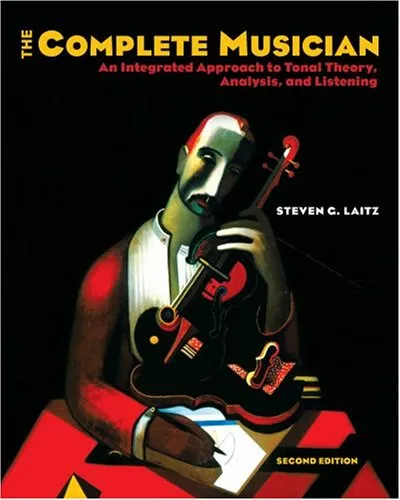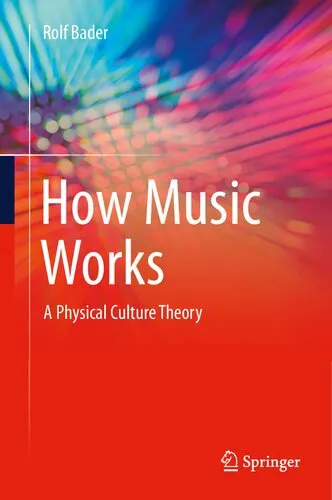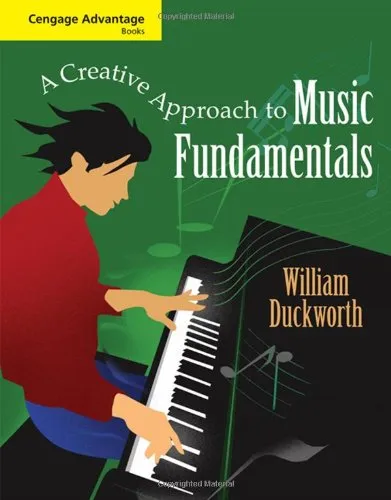Theory and Practice in the Music of the Islamic World: Essays in Honour of Owen Wright
4.0
Reviews from our users

You Can Ask your questions from this book's AI after Login
Each download or ask from book AI costs 2 points. To earn more free points, please visit the Points Guide Page and complete some valuable actions.Related Refrences:
Introduction to "Theory and Practice in the Music of the Islamic World: Essays in Honour of Owen Wright"
"Theory and Practice in the Music of the Islamic World: Essays in Honour of Owen Wright" is a pivotal collection of essays paying tribute to one of the foremost scholars in the field of Islamic musicology, Owen Wright. Edited by Rachel Harris and Martin Stokes, this book brings together insights from distinguished contributors who explore the profound and varied musical traditions found across the Islamic world. By examining the interplay between theoretical frameworks and practical applications of music, this book offers a unique perspective on a rich cultural and academic domain.
Drawing on a wide range of historical sources, ethnographic studies, and theoretical discussions, the book delves into the diverse landscapes of music within the Islamic world. It redefines our understanding of how musical systems evolved, interacted, and were both shaped by and contributed to broader cultural, political, and social dynamics. With thoughtful essays grounded in rigorous research, this volume serves as a vital resource for scholars, students, and anyone intrigued by the connections between music and culture in Islamic societies.
Detailed Summary of the Book
The book is a collection of essays that aims to bridge the gap between the theoretical underpinnings of Islamic music and its real-world manifestations in historical and contemporary contexts.
Each chapter is authored by a leading academic in the field, presenting a nuanced exploration of topics such as the aesthetics of music, its performance practices, notational systems, and the interaction of music with religious, cultural, and philosophical ideas. Several essays analyze manuscripts and historical treatises, shedding light on how music theory developed over centuries in parts of the world influenced by Islam. Others focus on ethnographic studies, providing insights into the lived experiences of musicians and the oral traditions that continue to thrive today. The geographic scope of the book is expansive, covering regions from the Middle East and North Africa to South Asia, Central Asia, and beyond.
What sets this book apart is its interdisciplinary approach. It combines perspectives from historical musicology, anthropology, ethnomusicology, and Middle Eastern studies. This multi-faceted exploration allows the book to dissect the complexities of how music operates within societies, addressing issues of identity, belonging, and resistance, while also responding to power structures, colonial legacies, and modernity.
Highlights include essays that connect traditional modes of performance to contemporary interpretations, revealing how musical traditions remain dynamic and relevant. This makes the book not simply an academic tribute but also a living document capturing the fluidity of music in Islamic cultures.
Key Takeaways
- Owen Wright’s contributions to the field of Islamic musicology are unparalleled and serve as a foundation for future scholarship.
- Music in Islamic cultures is deeply interconnected with broader social, political, and religious contexts, revealing layers of meaning beyond the auditory level.
- Islamic musical traditions are not monolithic but vary widely across regions, influenced by diverse histories, instruments, and performance practices.
- Theoretical analyses from ancient treatises remain highly relevant, connecting historical thought to contemporary practices.
- An interdisciplinary approach offers the richest insights, underscoring the necessity of examining music through multiple lenses including ethnography, history, and theory.
Famous Quotes from the Book
Here are some thought-provoking excerpts from the essays:
"Music in the Islamic world remains a site of profound cultural negotiation—in its theoretical structures, performance practices, and symbolic meanings."
"The interaction between oral and written traditions embodies the very essence of Islamic musicology, bridging ancient heritage with contemporary resonance."
"To understand Islamic music is to understand the interplay between structure and improvisation, silence and sound, tradition and innovation."
Why This Book Matters
This book is a landmark in the study of Islamic music, not only because it honors Owen Wright’s tremendous contributions but also because it charts a path forward for future scholars.
Music has always been a powerful cultural force, serving as a means of spiritual expression, social unity, and personal artistry. In Islamic societies, where music has often been shaped by religious principles and cultural conventions, understanding its theoretical and practical dimensions offers a lens into the broader histories and geographies of these communities.
This book is particularly important because it fills gaps in academic research, providing a much-needed dialogue between historical scholarship and contemporary ethnography. By doing so, it appeals not just to academics but also to performers, cultural historians, and general readers interested in the global nuances of music and culture.
Ultimately, "Theory and Practice in the Music of the Islamic World: Essays in Honour of Owen Wright" deepens our appreciation for the rich tapestry of traditions that define Islamic musical practices. It is a resource that will inspire generations of researchers and practitioners to come.
Free Direct Download
You Can Download this book after Login
Accessing books through legal platforms and public libraries not only supports the rights of authors and publishers but also contributes to the sustainability of reading culture. Before downloading, please take a moment to consider these options.
Find this book on other platforms:
WorldCat helps you find books in libraries worldwide.
See ratings, reviews, and discussions on Goodreads.
Find and buy rare or used books on AbeBooks.
1451
بازدید4.0
امتیاز0
نظر98%
رضایتReviews:
4.0
Based on 0 users review
Questions & Answers
Ask questions about this book or help others by answering
No questions yet. Be the first to ask!














